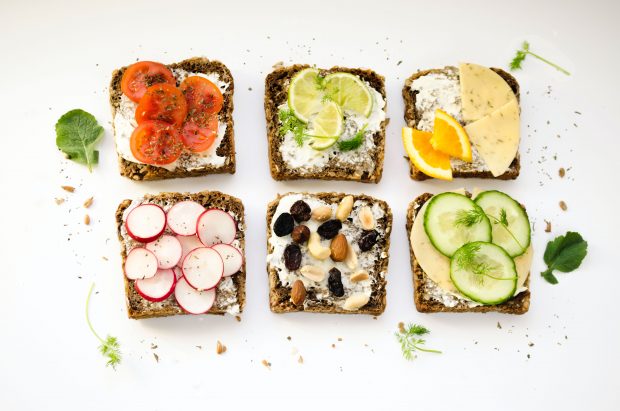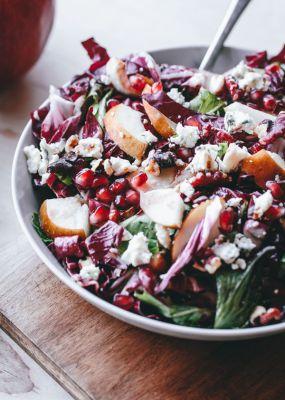Millions of people worldwide monitor their daily nutrient intake, measure their body mass index, and follow simple rules that may significantly improve their quality of life. The 1:1:4 balanced diet formula has been gaining popularity lately. We decided to look into this in more detail and answer basic questions about healthy eating. Longevity Live Paid Content.
What is healthy eating?
Healthy nutrition – a rational, balanced diet that provides the intake of biologically active substances by physiological needs, maintaining the body’s functional state at a high level.
First, the goal of a healthy diet is not to cure but to prevent chronic diseases and improve quality of life. It is necessary to understand: that you can’t eat whatever you want up to 40 years of age and then diet and immediately become healthy and full of energy. Taking care of your health is an ongoing process that has a cumulative effect. Also, healthy eating can be very delicious.
So the sooner you start caring about your diet, the better you’ll feel throughout life. The most suitable age for this is 17-23 years old. At this age, adaptation is the easiest. It is especially true if you have to change your diet drastically.

Photo by Anna Pelzer on Unsplash
Convenience foods are cheap, but in the long run they cost you more
A student’s diet depends directly on the ability to buy certain foods. Students rarely have a lot of money, so student menus often consist of convenience foods, instant foods, porridge, pasta, and potatoes. Students usually look for part-time jobs because of the lack of money. That’s great, but it leaves the student having very little free time. As a result, students have academic difficulties and feel unwell. Don’t get upset if you’re not doing well and feel very tired. You can hire the best writer at the write my paper service to solve your study troubles.
A healthy diet is a system where your body gets all the energy it needs to grow and function in the most digestible form possible. Despite many stereotypes, healthy eating is not about hardships and deprivation.
The definition says that a healthy diet should provide nutrients for physiological needs. Let’s figure out what that means. To do so, a couple of essential principles are worth mentioning.
How to adopt healthier habits today
Let’s start with the easiest part: your weight increases when your body gets more energy from food than it requires during the day.
Portion control
Therefore, your portion size will depend on your activity level – you can use an online calculator to calculate these figures. A healthy diet is primarily about eating in moderation. Even if you eat only fresh vegetables, overeating won’t do you any good.
Eat consistently
Secondly, it is good to eat regularly. Every day the body perceives a lack of nutrients as an attack of hunger, which is how our evolutionary mechanisms work. But what do we do when it’s hard to eat without food? Of course, store fat. So any idea that starvation is healthy is a myth.
Balance your nutrients
Finally, we come to the main question: how do you figure out which foods to include in your diet and which to limit? How do you calculate the proportions to meet the condition “consume as many as you need throughout the day,” and most importantly, how do you figure out how to consume those calories? Don’t worry: you don’t have to memorize a list of healthy foods. The formula is “one protein, one fat, four carbohydrates.”
What does the 1:1:4 formula mean?
It’s all pretty prosaic. 1:1:4 is the optimum ratio of proteins, fats, and carbohydrates found in the diet. It turns out that carbohydrates should be about four times more than proteins and fats separately – then the substances are better absorbed and do not turn into extra pounds.
A balanced diet should include 150 kcal from protein, 300 kcal from fat, and 550 kcal from carbohydrates for every 1,000 kcal. Contributing to the daily caloric intake will be:
- 150 kcal: 4 kcal = 37.5 g protein;
- 300 kcal: 9 kcal = 33.3 g of fat;
- 550 kcal: 4 kcal = 137.5 g of carbohydrates.
Thus, the ratio of proteins, fats, and carbohydrates in grams is 37.5: 33.3: 137.5, and when reduced to one, can be expressed as 1:1:4.
If we translate this into the language of food, we get a few simple rules. Let’s start with the fact that every meal on our plate should be a protein dish – meat, fish, scrambled eggs, cottage cheese, or porridge. It is necessary to replenish the daily protein intake by 70-80 grams.
Carbohydrates include simple and complex carbohydrates: simple ones are found, for example, in honey and sugar, and complex ones in cereals, legumes, rice, fruits, berries, and vegetables. The simple ones cause a heavy feeling and are more likely to be converted into fat. Complex ones give better satiety and are healthier for the body.

Photo by Ola Mishchenko on Unsplash
Why is healthy eating important for students?
A healthy diet is critical for everyone. Young people often don’t watch their diet and eat everything. Students have busy schedules. Students usually eat when they have a free minute. They also typically save money on good food. To stay healthy for a lifetime, you have to check your nutrition from an early age. The student years are the most important ones. During this period, we stop living with our parents, so we have to control everything ourselves, including our diet. That’s why getting healthy during college life is very critical, so you don’t ruin your health. It is also crucial to make time for rest and sleep. If you have to do assignments at night, turn to the best college essay writing service to delegate some of your tasks and get some rest.
What the science says
The Harvard School of Public Health published the world’s most extensive study, in which scientists assessed how a healthy lifestyle affects mortality. Based on decades of observation, they concluded that quitting smoking, maintaining a healthy weight, regular physical activity, and attention to nutrition dramatically reduced mortality risk. Their colleagues from Cambridge completed a similar study the same year and have even given an exact figure: according to their data, supporters of a healthy lifestyle live about 14 years longer on average than the average person.
Since then, the benefits of a healthy diet have become undeniable. Today, we have overcome many of the viruses and infections that were a leading cause of death. At the forefront are chronic diseases, whose occurrence relates closely to a person’s lifestyle. Therefore, the most obvious benefit of good nutrition is life extension.
But don’t think that eating healthy is a complicated and long-term investment. Taking care of ourselves begins to pay off very quickly because, without exception, all of our body systems depend on food. People who adopt a healthy lifestyle have better skin, less shortness of breath and increased stamina, better digestion, no heaviness after meals, more energy, and even a better mood. It’s all pure physiology, tied to the way our bodies work.
Apps that can help you navigate good eating habits
But how do you make sense of the dozens of recommendations and hundreds of articles, often contradicting each other? Don’t trust myths, but check the facts. To understand the intricacies of healthy eating and to build a proper, balanced diet, choose only credible sources of information.
Helpful tips from scientists and health experts, unusual recipes from celebrity chefs, and helpful advice on selecting the right foods and making the best diet from the least expensive ingredients are all available online. You can pick dishes by composition, calories, and cooking time online or by contacting a nutritionist. You can also download useful apps for students depending on your needs. Furthermore, you can find apps to help you count calories, study, have fun, and so on. Eat right and be healthy.
Who is the author?

Jennifer Dellinger
Jennifer Dellinger is a blogger and professional content writer. She writes about travel, education, and lifestyle. The author shares useful materials for students.





![women [longevity live]](https://longevitylive.com/wp-content/uploads/2020/01/photo-of-women-walking-down-the-street-1116984-100x100.jpg)










